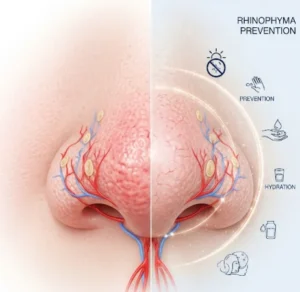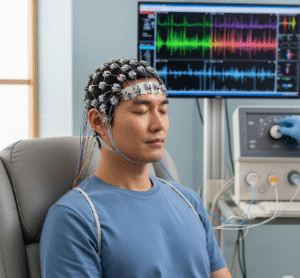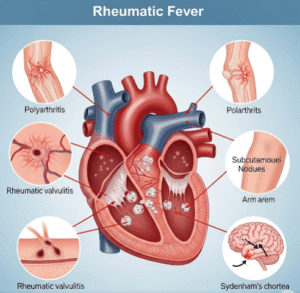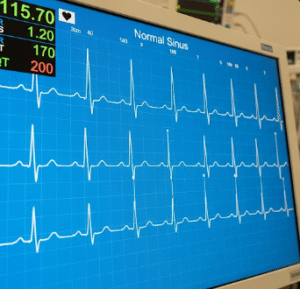Overview
Panic disorder is a mental health condition characterized by sudden and repeated episodes of intense fear or discomfort, known as panic attacks. These attacks can occur without warning and often feel like a heart attack or life-threatening emergency. While panic attacks are not physically dangerous, they can significantly impair daily life, causing individuals to avoid certain situations out of fear of having another attack. Fortunately, panic disorder is highly treatable with the right combination of therapy, lifestyle changes, and medication.
What is Panic Disorder?
Panic disorder is a type of anxiety disorder involving recurring and unexpected panic attacks—episodes of intense fear accompanied by physical symptoms like a racing heart, shortness of breath, chest pain, dizziness, or nausea. To be diagnosed with panic disorder, the person must experience frequent panic attacks and live in persistent fear of future attacks for at least one month.
Unlike general anxiety, panic disorder is marked by sudden, intense, and unpredictable episodes that are often out of proportion to any real danger or threat.
Symptoms
Symptoms of panic disorder primarily include the physical and emotional features of panic attacks, as well as behaviors associated with the fear of future attacks. Common symptoms include:
- Rapid or pounding heartbeat
- Shortness of breath or choking sensation
- Sweating or chills
- Trembling or shaking
- Chest pain or discomfort
- Dizziness or lightheadedness
- Nausea or abdominal distress
- Numbness or tingling sensations
- Fear of losing control, going crazy, or dying
- Feeling detached from reality (derealization or depersonalization)
- Avoidance of situations or places where previous attacks occurred
Symptoms typically peak within 10 minutes and may last up to an hour.
Causes
The exact cause of panic disorder is unknown, but it is believed to result from a combination of biological, psychological, and environmental factors:
- Genetics: A family history of anxiety or panic disorder increases the risk
- Brain chemistry: Imbalances in neurotransmitters like serotonin and norepinephrine
- Stress and trauma: Major life changes, accidents, abuse, or loss
- Temperament: People who are more sensitive to stress or prone to negative emotions
- Medical conditions: Some health issues (thyroid problems, hypoglycemia) can mimic or trigger panic attacks
Caffeine, drug use, or withdrawal from substances can also provoke panic-like symptoms.
Risk Factors
Several factors may increase the likelihood of developing panic disorder:
- Family history of anxiety, depression, or panic disorder
- Chronic stress or traumatic experiences
- Early childhood abuse or neglect
- Major life transitions, such as divorce, job loss, or moving
- Female gender (women are twice as likely to be diagnosed)
- History of other mental health disorders, such as depression or phobias
Understanding risk factors helps in early identification and intervention.
Complications
If left untreated, panic disorder can lead to significant complications that affect a person’s quality of life:
- Avoidance behavior (agoraphobia): fear of public or crowded spaces
- Social isolation and poor relationships
- Substance abuse (alcohol, tranquilizers)
- Depression or other anxiety disorders
- Difficulty maintaining employment or education
- Increased risk of suicidal thoughts or behavior
Prompt diagnosis and treatment can prevent many of these complications.
Prevention
While panic disorder itself may not always be preventable, steps can be taken to reduce its severity or avoid worsening symptoms:
- Manage stress through meditation, breathing exercises, or yoga
- Limit caffeine, alcohol, and stimulants that can trigger attacks
- Maintain a consistent sleep schedule and practice good sleep hygiene
- Seek early help if anxiety or panic symptoms appear
- Build a support system of trusted friends, family, or professionals
- Engage in regular physical activity, which helps balance brain chemistry
Early intervention is key to managing symptoms and reducing long-term effects.
Treatment Option in Korea
South Korea offers advanced and accessible treatment for panic disorder, integrating modern psychiatry with holistic approaches. Korean mental health facilities are well-equipped to handle anxiety-related conditions through personalized treatment plans:
- Psychiatric Clinics & Hospitals: Leading institutions like Seoul National University Hospital, National Center for Mental Health, and Asan Medical Center provide comprehensive psychiatric care, including diagnosis and follow-up.
- Cognitive Behavioral Therapy (CBT): Widely used and available, CBT is the gold-standard treatment that helps individuals identify and change thought patterns that lead to panic attacks.
- Medication:
- SSRIs (e.g., sertraline, fluoxetine) are commonly prescribed to regulate anxiety levels
- Benzodiazepines (e.g., clonazepam, alprazolam) may be used short-term for immediate relief
- Korean psychiatrists carefully monitor dosages and side effects through regular check-ups
- Mindfulness and Meditation Programs: Offered at both hospitals and wellness centers to reduce general anxiety and panic sensitivity
- Support Groups and Counseling: Available for long-term coping strategies, stress management, and peer support
- Traditional Korean Medicine (Hanbang): Some patients complement their care with herbal treatments, acupuncture, and breathing therapies under licensed practitioners
Korea’s stigma-free approach to mental health is improving rapidly, and access to therapy and psychiatric services is becoming more widespread and patient-friendly.













